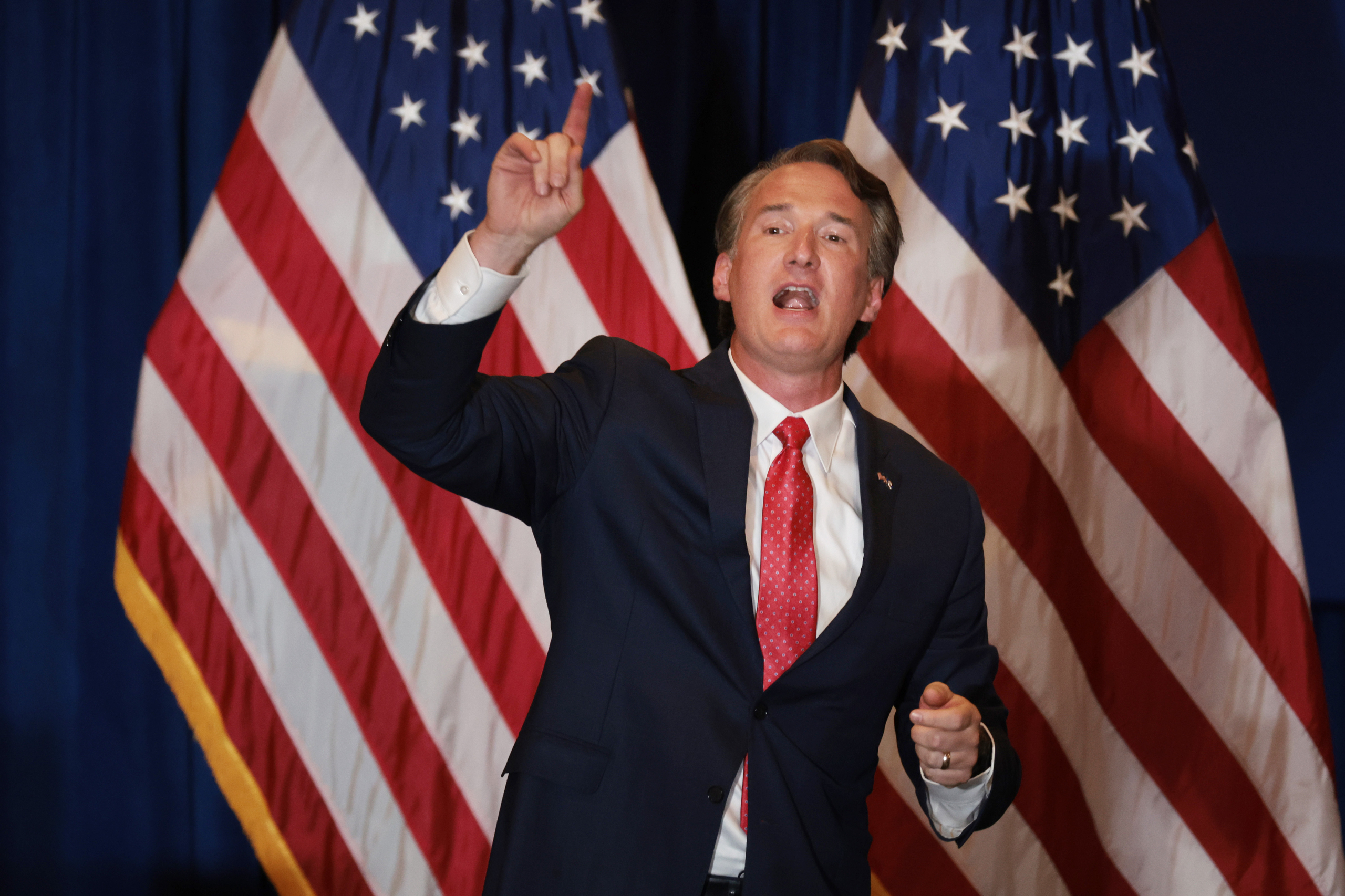“We’ve seen the emergence of the Delta-variant of Trumpism,” opined Van Jones in a panel discussion on CNN about election 2021. Whining loudly on the cable news network, Jones and other pundits claim Glenn Youngkin’s win in the Virginia gubernatorial race was nothing more than white identity politics at work. As far as we can tell, whites are still permitted to vote in the Old Dominion. Still, the stunning result from an election that was supposed to be a sleeper reveal that voter rejection of Democrat Terry McAuliffe goes much deeper, leading us to ask, “What the hell just happened in Virginia?”
It’s the Economy, Stupid
 Exit polls revealed Republicans and Democrats cited the economy as the biggest reason for their vote. According to a prominent Washington newspaper, “About one-third of Virginia voters said that the economy was the most important issue facing Virginia.” Education – where the race card reared its head – came in second, with about a quarter of voters saying that was their top concern.
Exit polls revealed Republicans and Democrats cited the economy as the biggest reason for their vote. According to a prominent Washington newspaper, “About one-third of Virginia voters said that the economy was the most important issue facing Virginia.” Education – where the race card reared its head – came in second, with about a quarter of voters saying that was their top concern.
However, it was not the two parties that decided this race so much as the independents. The mercurial non-party affiliated group preferred Republican newcomer Youngkin over Democratic establishment candidate McAuliffe 54% to 45%, according to surveys filled out by those who went to the polls on Tuesday, Nov. 2. This number represents a mass exodus from the 2020 presidential contest, when Virginians voted for the Biden/Harris ticket in droves.
An exit poll conducted by Edison Research exposed McAuliffe’s Achilles’ heel, which came in the form of women. In 2020, 61% of Virginia women voted for Joe Biden, but that number sunk to 53% for the Democrat contender in the 2021 gubernatorial election. In comparing the Virginia demographics to those in 2020, white women showed a strong preference for Youngkin over President Trump and voted 57% to 49% in favor of the political novice. In terms of political ideology, conservatives of both sexes were energized by Youngkin, with almost 10% more voting for him than voted for President Trump one year ago.
Looking Beyond the Numbers
While analysts and pundits largely believe election 2021 will go down in history as a repudiation of the Biden administration, there are other lessons to be learned. First, Americans historically have voted on pocketbook issues. Whether a voter is financially strapped or not, no one wants to pay more for gasoline and food. And while supply chain issues were not explicitly discussed, it doesn’t help when people can’t get their hands on a Lean Cuisine or a Hallmark card.

(Photo by Brittany Murray/MediaNews Group/Long Beach Press-Telegram via Getty Images)
Second, it’s never a good idea to mess with parents – especially moms – when it comes to their children. McAuliffe politically tarred and feathered himself when he said, “I don’t think parents should be telling schools what they should teach.” Similar to Hillary Clinton’s “deplorables” moment, it was a statement from which he could never recover. Figuratively speaking, McAuliffe donned a helmet a la Michael Dukakis and was seen riding around Virginia in a tank looking quite silly from that point on.
Third, the GOP got the diversity message and ran with it. They put forth a black woman in Winsome Sears for lieutenant governor and a Hispanic in Jason Miyares for attorney general. It’s tough to tag a political party as racist with such diverse candidates.
On April 18, 1775, British troops thundered toward the tiny town of Concord, Massachusetts, to seize firearms that American colonists had stockpiled. At dawn the next morning, as the Brits made their way into Lexington, they were met by some 70 minutemen standing tall on the village green. That’s when someone fired a shot, and in the ensuing volley eight colonists were killed. To this day, it is known as the “shot heard round the world.” Whether the governor’s race in Virginia is a 21st century political version of this historic American moment remains to be seen. However, one thing is for sure, just as the colonists became enraged by the deaths of the patriots in Lexington, Republicans across the country are standing a little taller today and are gathering their troops for the next battle.
~ Read more from Leesa K. Donner.




